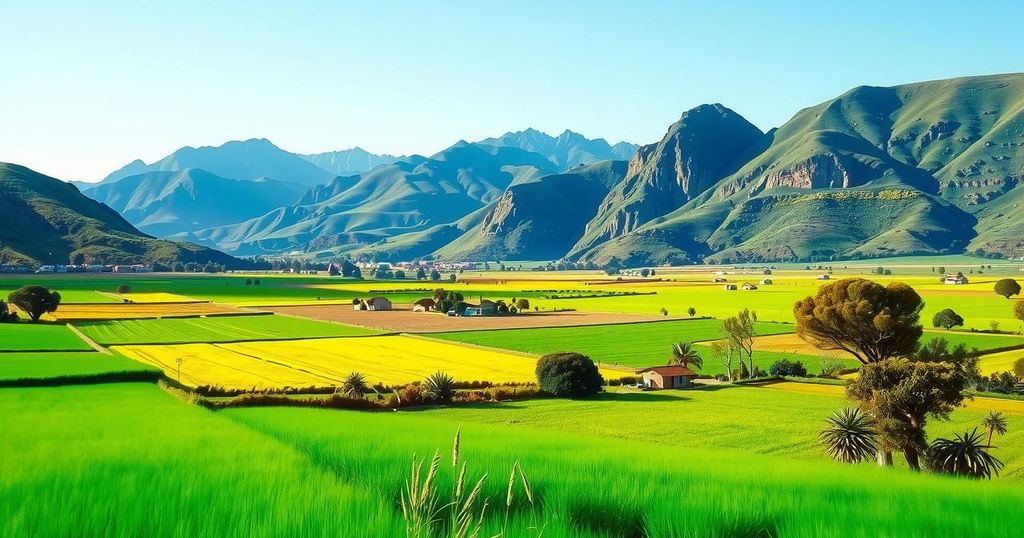Saul Luciano Lliuya, a Peruvian farmer, is suing RWE, a German energy firm, for €21,000 due to the company’s greenhouse gas emissions allegedly contributing to melting glaciers and flooding risks in his hometown of Huaraz. This landmark case may set a precedent for accountability in climate litigation, as it challenges the responsibility of corporations like RWE for their emissions. The legal proceedings stem from claims based on Civil Law Code provisions and have been ongoing for nearly a decade, with significant implications for future climate lawsuits.
A Peruvian farmer, Saul Luciano Lliuya, is taking the German energy company RWE to court, marking a significant moment in climate litigation. The Higher Regional Court of Hamm is set to hear his case, wherein he claims RWE’s emissions have contributed to the melting glaciers in the Andes, causing a dangerous rise in a lake above his hometown of Huaraz. Lliuya seeks €21,000 to assist with a flood defense project estimated at $3.5 million.
The legal basis for Lliuya’s case derives from subsection 1004 of the Civil Law Code, allowing property owners to demand compensation for interference with their property. Lliuya asserts that RWE is responsible for approximately 0.5% of global manmade greenhouse gas emissions since the late 18th century and should contribute proportionately to prevent flooding risks.
The journey to court has been lengthy due to earlier dismissals and the pandemic causing delays in expert assessments. Initially, a regional court in Essen rejected Lliuya’s claims, citing the multitude of carbon emitters globally. However, upon appeal, a higher court recognized the case in 2017, indicating that evidence needed evaluation, culminating in an expert opinion released in 2023.
This case is particularly noteworthy as it could set a legal precedent for future corporate accountability regarding climate impact. A finding of liability against RWE could pave the way for similar lawsuits aimed at large corporations and their environmental responsibilities. Roda Verheyen, Lliuya’s attorney, emphasized the significance of the case, noting that its ruling could inform subsequent legal actions regardless of the outcome.
Scientific evidence supports Lliuya’s claims, with studies confirming that melting glaciers in the Peruvian Andes are linked to human-induced climate change. Friederike Otto, a climate scientist, stated that there is substantial proof of this phenomenon affecting the region, underscoring the necessity of establishing accountability for emissions.
RWE has contested the allegations, asserting that a single emitter cannot be solely charged for global climate change. The company is in the process of transitioning towards more sustainable practices, significantly reducing its CO2 emissions over recent years and planning further reductions, including phasing out lignite power by 2030.
The court case initiated by Saul Luciano Lliuya against RWE poses critical questions regarding corporate accountability for climate change. Lliuya seeks compensation to support flood defense measures due to glacier melting attributed to RWE’s emissions. This case, which has evolved over nearly a decade due to various legal hurdles, could significantly impact future climate-related lawsuits, potentially holding companies accountable for their contributions to environmental challenges.
Original Source: www.stabroeknews.com




